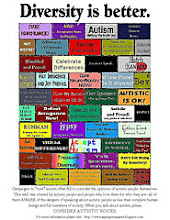Prickly pairs

After a long career in the Navy, my parents decided to buy a house and remain in one place.
It was a three story terraced Victorian house and I loved it before the ink was dry on the contract. At the back of the house, leading to the tiny strip garden, was what my mother called ‘the conservatory.’
The conservatory was a four foot square arrangement of glass and wooden shelves, an entrance way or exit, a distance of three paces. The previous owners has neglected to remove some of their plants from this area, predominantly "cacti." They were a dull grey, with lots of prickles but otherwise quite unremarkable, apart from the single startling iridescent "bloom" stuck on the side like an afterthought. I stroked it to make sure that it wasn’t plastic, as the 1970’s were the heyday of fake flowers. Although my mother was keen to clear the place out, the cacti were reprieved.
Her delegation of duties had me hooked on responsibility.
I was immediately derelict in my duties as I trudged off to boarding school. I certainly would never have survived without water for three months, but cacti are so much more forgiving. They thrive on neglect. My arrival home was their rainy season when I would drown them with attention for a couple of weeks.
“Wear my gardening gloves,” my mother would advise, but I was of the filthy species of child. They were too big for pudgy little hands, far easier to dive in with naked digits. The huge prickles were easy to avoid. They broadcast their dangers. It was the little fuzzy ones that were my downfall. Their deceptive fur would burrow little barbs into the flesh to leave hairy fingertips. Easy to see but impossible to remove with stubby nails.
All these years later, it seems that both my girls have the same filthy gene, the ‘climb a tree,’ ‘dig a hole,’ ‘am I really plastered in chocolate?’ gene. My eldest son is graduating to the same genetic heights but climbing is still a struggle, as co-ordination of body parts is a challenge. We should all have been born with a coating of Teflon.
My youngest son on the other hand, lives life with as little use of his hands as is humanly possible. Tactile defensiveness, or how things feel, means that he will go to great lengths to avoid touching anything. He tucks his hands in pockets or armpits, clasps them behind his back out of danger or protects his fingertips in his mouth. They are all default positions for hypervigilant people.
We have been in this particular groove since the beginning. I might call it desensitization but it still looks like torture from his perspective. Time and maturation have helped but it’s a predictable path. In earlier times we worked to persuade him to write in shaving foam with his finger, buried plastic dinosaurs in sand, sunk Thomas in a washing up bowl full of suds, hid Pokemon in playdough and used any number of other devious means to tempt those fingertips into our tactile world. We should not discount the psychological cost of such treatment. How does the average three year old feel when you pour cement over their precious security blanket? For me, to witness his terror was offset by his determination and instinct to rescue despite the personal pain. It's a question of balance and I think I was off kilter.
These days he’s more malleable and sometimes he surprises us with his bravery. He’s also learned to adopt his own safety strategies to help him cope with the onslaught. We own more woolen, cotton and disposable gloves than any other family in a five mile radius of our home. He’s more willing to use tools, even though they’re difficult to manipulate because it means that he is saved from the agony of touching something worse.
They’re nothing if not inventive, children that is to say.
“I am need!” he squeals at no-one in particular.
“What do you need dear?”
“More.”
“More what?”
“More armour.”
“Armour?”
“Yes I have be one but I be need more nine.”
“Nine what?”
“Nine armours.”
It's always best to expect the "unexpected."




